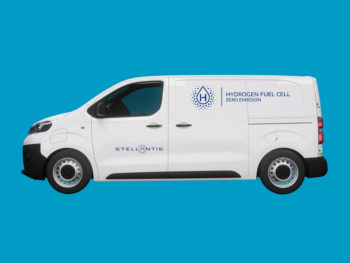The adoption of hydrogen vans by fleets is likely to be dictated by the rate of growth of the refuelling infrastructure.

So says fleet software specialist FleetCheck as it highlights how the introduction of hydrogen fuel cell panel vans could solve many operational issues posed by battery electric vans.
Peter Golding, managing director at FleetCheck, said: “For fleets that carry low-medium weights in urban environments over short-medium distances, an electric panel van is a good solution, and there are a wide range of options becoming available on the market.
“However, if you currently move more than a tonne payload 200-300 miles in a day, up and down motorways, they are much less practical. In winter, completing that kind of working day could require not just an overnight charge but a couple of additional charges.
“That is why hydrogen is being talked about more and more by operators, and was a major source of conversation at the recent CV Show, with the hydrogen Vivaro on the Vauxhall stand due for arrival in 2023 a particular source of speculation. Because it can be refuelled with the speed and ease of a diesel vehicle, while providing similar range, it potentially solves those specific operational problems to which EVs are arguably not well suited.”
But Golding added that there were two barriers to hydrogen adoption for panel van operators – cost and the current absence of hydrogen fuelling stations across most areas of the country.
“Something like the Vivaro will have to be manufactured in quite large numbers to make its purchase price and running costs viable,” he continued. “That could happen but will only occur if there is a usefully large refuelling infrastructure in place and there just isn’t at present.
“Of course, we will need widespread growth of hydrogen stations within a number of years because hydrogen will almost certainly be the motive power for bus and truck decarbonisation by 2040, but shorter term provision is much more uncertain. Even the hydrogen buses now in operation are being depot-fuelled, I understand.
“In a very real sense, whether fleets ultimately end up using hydrogen or battery electric power for medium panels vans will very much be dictated by the speed of growth of the hydrogen infrastructure. There is little question that hydrogen itself is a better operational solution but only if you can actually get hold of fuel with relative ease.”
Golding also said a further question mark concerned whether van manufacturers would be able to call on sufficient resources to develop electric and hydrogen drive trains side-by-side.
“The switch to electrification is already creating a demand for massive investment in new technology for manufacturers. Whether they have an appetite to do the same for hydrogen in parallel must be very much open to question, despite its potential advantages.”

